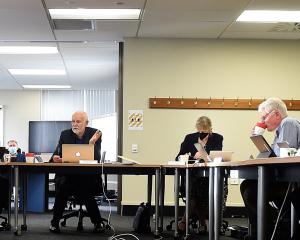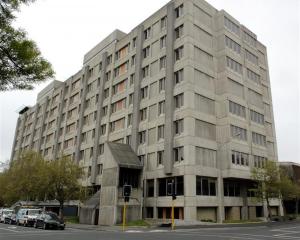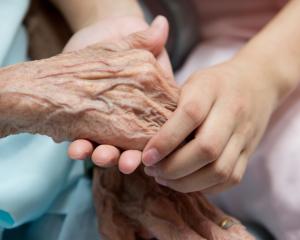An audit of 767 people who may have had delayed or declined access to surveillance colonoscopy in Otago between 2007 and 2011 found eight had died of bowel cancer or its complications.
In an Official Information Act response on the audit, the Southern District Health Board says there is no definite conclusion anyone had an unexpected death or major loss of function as a result of limits on surveillance colonoscopies during those years.
It is understood three other people had been diagnosed with bowel cancer by the time of the follow-up, including the woman whose diagnosis sparked the review.
They have been described by board chief medical officer Richard Bunton as ''alive and well following treatment'' but staff have not yet been available to answer further questions about these cases.
There were 38 deaths from any cause from within the 767 in the audit group, including the eight bowel cancer patients who were all diagnosed and treated in the public system.
Information provided by the board shows that at the time of diagnosis, the tumours found in the eight who died had all grown into the outer lining of the bowel wall at least, and some cancers involved lymph nodes.
Four people had developed progressive disease, despite treatment and before the recommended surveillance interval.
In her written OIA response, board executive director of patient services Lexie O'Shea said this reflected the ''tumour biology of higher-risk cancers at diagnosis in this group''.
One of those who died had declined further surveillance after surgery and chemotherapy. One had died from complications related to curative cancer surgery.
Two, who had previously been diagnosed with bowel cancer, were subsequently found to have new bowel cancer and later died after the disease spread, after recommended treatment.
''As a comparator, we do not know how many people may have died from bowel cancer or its complications in those who were under colonoscopy surveillance''.
International experience showed 6%-12% of lesions larger than 1cm could be missed, she said.
Last year, the board carried out 178 surveillance colonoscopies on some of those affected by the restrictions.
None of these people was found to have cancers or advanced adenomas. About 400 people had already received colonoscopies, according to earlier reports on the review.
Twenty-eight of the 178 (16%) had adenomatous polyps - which may develop into cancers over time - removed.
The 2012 national criteria, now used by the board, determined who qualified for the procedure in the follow-up.
These criteria identify those at increased risk of bowel cancer, who can then be offered regular surveillance colonoscopies in the hope any sign of disease may be identified and treated early, before symptoms become apparent.
In 2007 the then Otago board, because of pressure on its colonoscopy service from patients with possible bowel cancer symptoms, departed from the then national guidelines and severely limited surveillance procedures.
Among those covered by the audit, 49 had had colonoscopy performed in the private sector.
Asked if they would be reimbursed for this cost, Mrs O'Shea said there was no local or national policy recommending reimbursement of costs to individuals ''who choose to access private healthcare providers for colonoscopy or any other medical intervention''.
In response to questions about reporting on the audit, Mrs O'Shea said there would be no formal report about the follow-up cases, although the findings would be circulated among the members of the gastroenterology clinical and management teams.
''The findings directly relate to historical national and local practices which do not impact on current colonoscopy provision in Dunedin Hospital.
''No definite conclusion can be drawn that any individual has had an unexpected death or major loss of function (i.e. a sentinel event) as the result of access criteria utilised, either nationally or in Otago DHB, between 2007 and 2011,'' she said.
Advertisement













